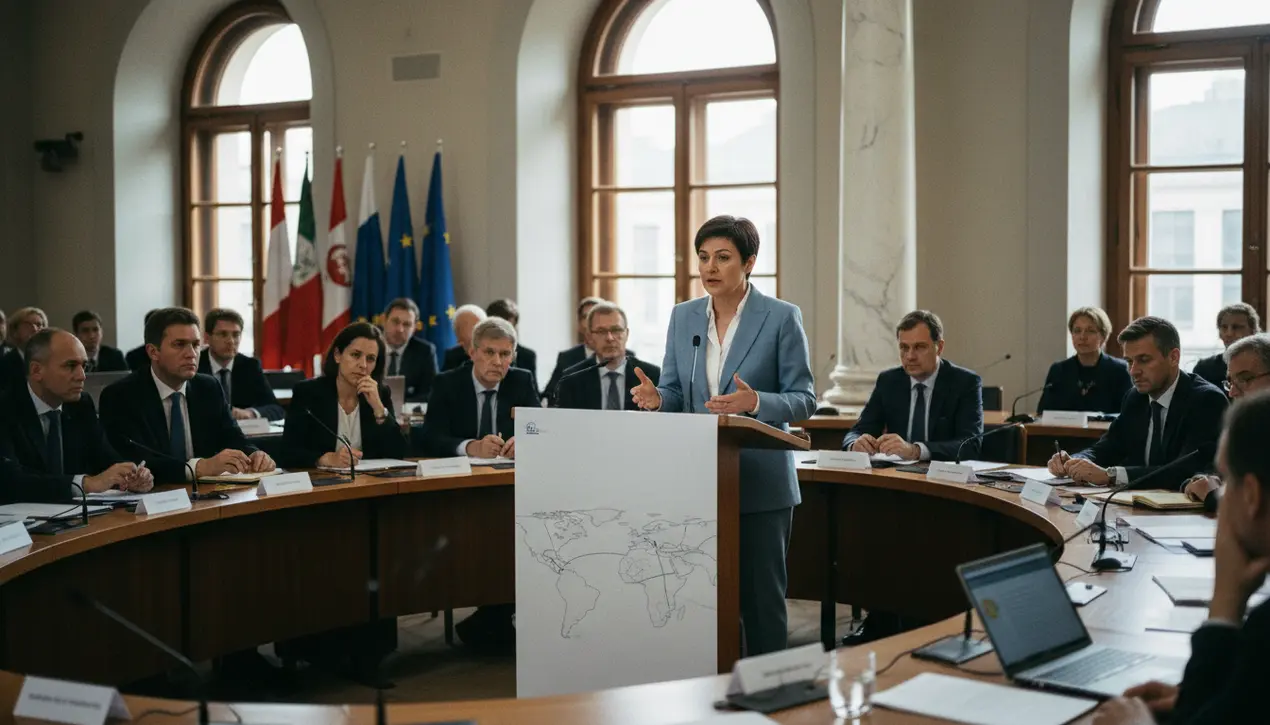
PoliticsdiplomacyBilateral Relations
Analysts Expect Measured Beijing Response to Taiwan Speech.
RO
Robert Hayes
2 hours ago7 min read
The measured, almost predictable, irritation emanating from Beijing following Taiwanese Vice President Hsiao Bi-khim's address in Brussels is a diplomatic maneuver as calculated as any Churchillian stratagem. Her speech, delivered under the provocative banner 'Taiwan: A Trusted Partner in a Volatile World' within the very halls of the European Parliament, was not an isolated incident but the latest move in a high-stakes geopolitical chess match.The venue itself, an event hosted by the Inter-Parliamentary Alliance on China (IPAC), is significant; this coalition, comprising hawkish legislators from 43 nations and the EU, represents a formidable front of institutionalized skepticism towards Beijing's ambitions. Analysts, parsing the tea leaves of official statements and state-media rhetoric, anticipate a response calibrated to signal displeasure without escalating to overt economic coercion or military posturing, a tactic reminiscent of Cold War-era brinksmanship where the appearance of control is as crucial as the exercise of power.This measured approach is rooted in a complex calculus. On one hand, China's foundational 'One-China Principle' is non-negotiable, and any international platform granted to Taiwanese leadership is viewed as a direct challenge to its sovereignty, an act that historically prompts furious denunciations and often retaliatory measures, such as sanctions on defense companies or military exercises in the Taiwan Strait.Yet, on the other hand, Beijing is acutely aware of the global audience. With Europe already wary of Chinese influence and critical of its human rights record, an overreaction could further alienate key trading partners and push the EU closer to the U.S. position on containing China, thereby undermining Beijing's long-term goal of fracturing Western unity.The substance of Hsiao's speech, which positioned Taiwan as a bastion of democracy and a reliable semiconductor partner, directly counters Beijing's narrative of the island as a renegade province and frames the conflict not in terms of reunification but of global systemic competition between authoritarianism and democratic values. This framing is precisely what IPAC was established to promote, and Beijing's response must therefore be sophisticated enough to counter this narrative without appearing thuggish.We can look to historical precedents, such as the fallout from Nancy Pelosi's visit to Taipei in 2022, which triggered live-fire drills that effectively blockaded the island. The current scenario lacks that immediate, high-profile American provocation, allowing Beijing the space for a more nuanced retaliation, perhaps targeting European entities within IPAC or increasing diplomatic pressure on individual EU member states to withdraw their support.The ultimate consequence of this Brussels speech may not be an immediate crisis but a further entrenchment of positions, slowly eroding the space for dialogue and making the delicate status quo in the Taiwan Strait even more precarious. As in the great power struggles of the past, today's measured response is merely the quiet before a potential storm, a calculated pause in an ongoing war of narratives that holds the peace of an entire region in the balance.
#Beijing
#Taiwan
#Hsiao Bi-khim
#European Parliament
#IPAC
#cross-strait relations
#diplomatic friction
#featured
Stay Informed. Act Smarter.
Get weekly highlights, major headlines, and expert insights — then put your knowledge to work in our live prediction markets.
Related News
Comments
Loading comments...
© 2025 Outpoll Service LTD. All rights reserved.














